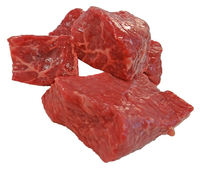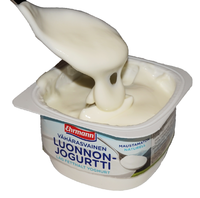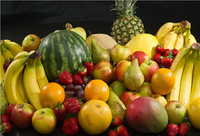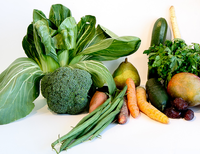Difference between revisions of "Mineral"
| Line 26: | Line 26: | ||
| style="height:20px; width:200px; text-align:center;" |Vegetables have lots of different minerals. | | style="height:20px; width:200px; text-align:center;" |Vegetables have lots of different minerals. | ||
|} | |} | ||
| + | |||
| + | ===References=== | ||
| + | ====AQA==== | ||
| + | |||
| + | :[https://www.amazon.co.uk/gp/product/0008158762/ref=as_li_tl?ie=UTF8&camp=1634&creative=6738&creativeASIN=0008158762&linkCode=as2&tag=nrjc-21&linkId=a0fffa35b3ea49a63404f6704e0df7cc ''Mineral, page 132, GCSE Chemistry; Student Book, Collins, AQA ''] | ||
Latest revision as of 17:18, 8 November 2019
Contents
Key Stage 3
Meaning
Minerals are different naturally occurring elements and compounds.
Minerals in our Diet
- Minerals are an essential part of a healthy diet.
- We need minerals for the body to build certain proteins.
Some minerals you should know:
- Iron - Used to make red blood cells.
- Calcium - Used to keep bones and teeth strong.
- Sodium - Used in nerve cells to send signals around the body.
- Iodine - Used in the thyroid gland to make special proteins called hormones.
Minerals in Food
| Red meat contains lots of Iron. | Yoghurt, milk and cream are a good source of calcium. | Fruit have lots of different minerals inside. | Vegetables have lots of different minerals. |



